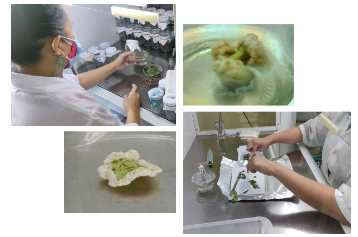
In support of the organic agriculture program of the country, technologies for organic Arabica production have been developed by the Benguet State University (BSU) through DOST-PCAARRD funding, and are for validation in the field. Developed products for organic Arabica production include solid and liquid organic fertilizers, and biocontrol agents for coffee rust and coffee anthracnose. Field testing for these technologies are under way. Two systems of intercropping botanicals with rejuvenated Arabica coffee trees are being tested; initial results show that Arabica coffee + Alnus and Arabica coffee + Citronella had lowest coffee rust infestation rating, while anthracnose infection of Arabica coffee intercropped with papaya was low compared to other intercrops. On postharvest handling, initial results indicate that wet natural fermentation and dry natural fermentation (using jute sacks or black polyethylene bags) show no considerable differences, hence use of jute sack or black PE bag could be an alternative to wet process in areas where water is scarce.
Organic Arabica green bean production has also been promoted in Sagada, Mt. Province. Five clusters composed of 35 Arabica coffee growers have been organized and trained. The S&T interventions on proper pruning of unwanted, infested/infected twigs and leaves, handpicking, and application of botanical extracts (chili and vermi tea) and detergent reduced insect pests and diseases, thereby increasing the coffee bean yield from 300 to an average of 679 g/tree. Additional 55 coffee growers from Sagada, adopted the S&T interventions after attending technology field days, farm tours, and farmers’ fora. A total of 8,576 Arabica coffee seedlings were planted by the cooperators and new adopters.


